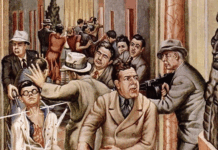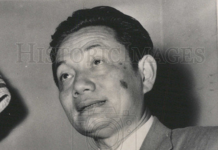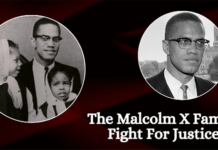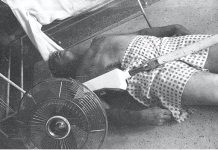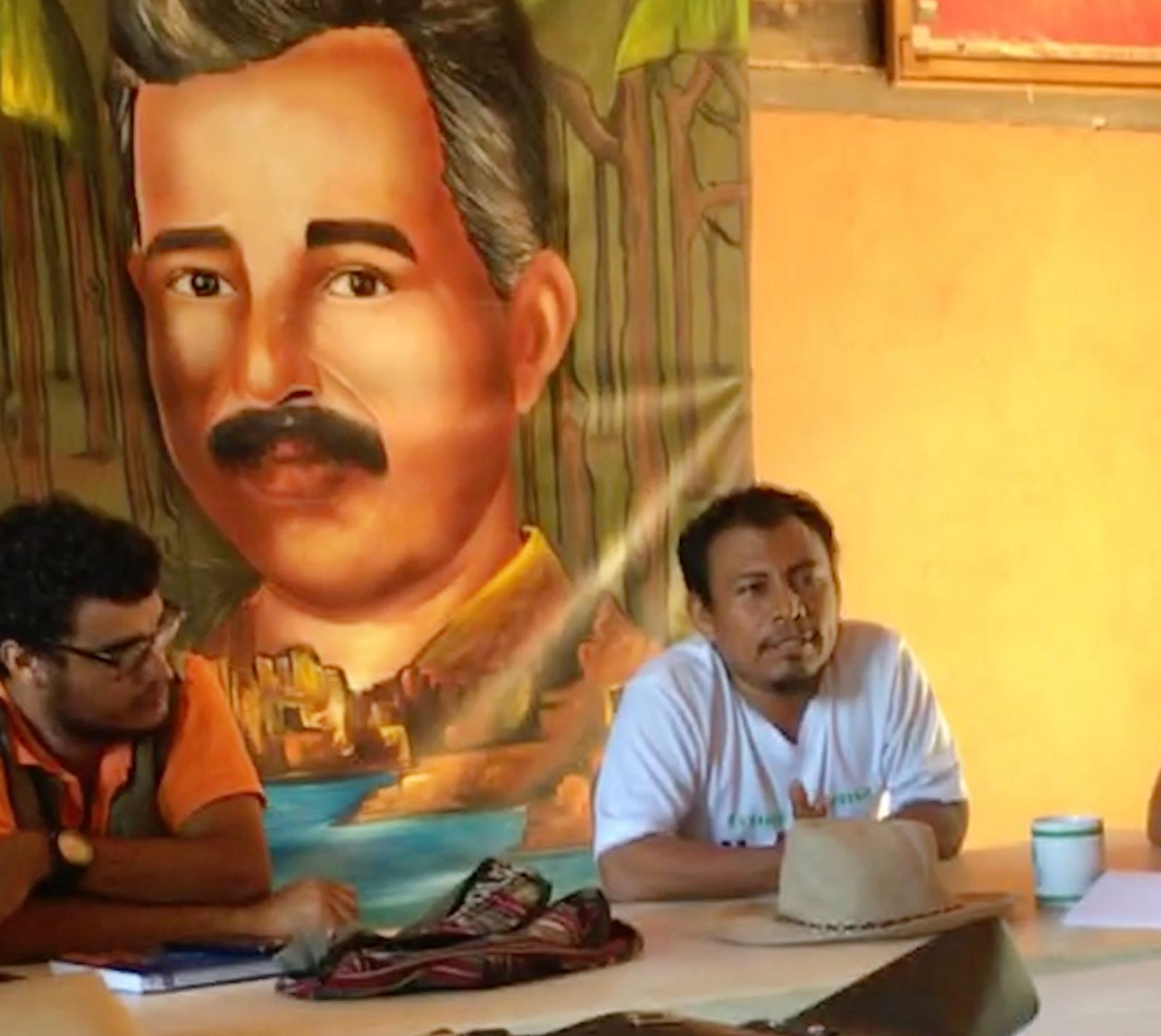
On the evening of September 14, Delegate of the Word Juan López had just finished leading a Saturday evening service at the Catholic church in Tocoa, Honduras.
Witnesses say that, as he was getting to his car, someone on a motorcycle rode by and shot him multiple times, killing him.
López was a teacher, community leader, and a member of the Tocoa municipal council. He was also a human rights activist and the most prominent environmental defender in Honduras since the assassination of water protector Berta Cáceres in 2016.
In 2015, the year before her assassination, Cáceres was awarded the international Goldman Environmental Prize for Indigenous environmental activism. In 2019 the Institute for Policy Studies awarded López, on behalf of the Guapinol Water Defenders, the Letelier-Moffitt Human Rights Award for the defense of sovereignty, environment and human rights.
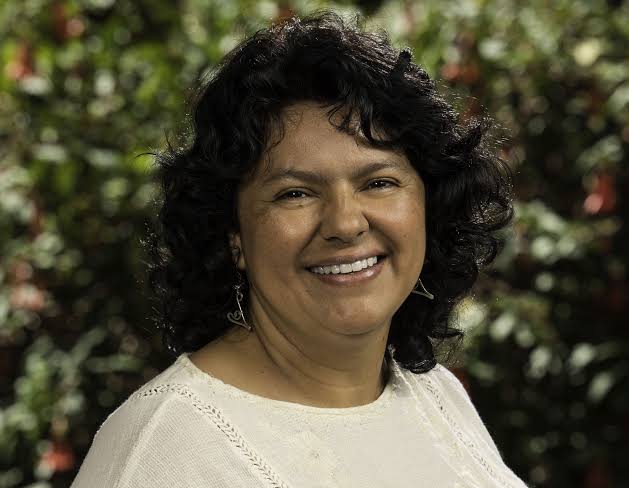
Juan López is already mourned throughout Honduras. There are demands not only to find and indict his killers—the one who shot him and those who ordered the killing—but also to condemn those who have institutionalized the systematic theft of the region’s environment and the displacement of its rural communities. That region is the Aguán Valley that has for long been a particularly violent area for land conflict and the destruction of peasant communities and cooperatives.
For many years, López had been fighting the devastation of mining and other uncontrolled environmental exploitation. He was part of a group of local people who have been waging decades-long resistance to the poisoning of the area’s rivers from mining. They are known in Honduras as the Guapinol Water Defenders for trying to protect their community and the Guapinol and San Pedro rivers.
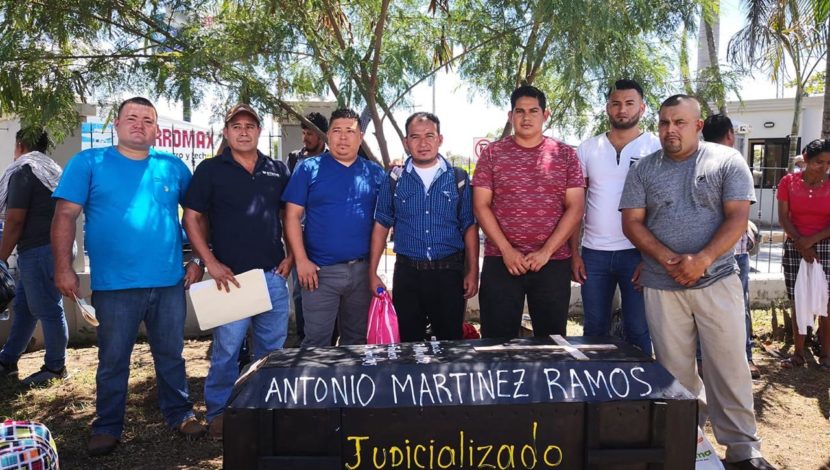
During the previous Honduran government—the U.S.-backed “narco-dictatorship” of Juan Orlando Hernández—the struggle to protect the environment in the area increased in urgency and danger when the mining company Los Pinares, owned by one of the wealthiest families in Honduras, began work on a large mining-hydropower complex.
Mining projects like this require enormous amounts of water, diverting it from local farmers and communities.
The result is that what little water remains is polluted, the surrounding area is difficult or impossible to farm, and communities are left with little or no potable water. The hydropower part of the Los Pinares mining plant meant the capture of more water, further threatening local communities and the environment.
The mining concession to Los Pinares was within the boundaries of the Carlos Escaleras National Park, a major environmental reserve that contains the headwaters of various rivers that provide water to local communities. People were concerned about their water supply and they were angered that the National Park was invaded by a mining project.
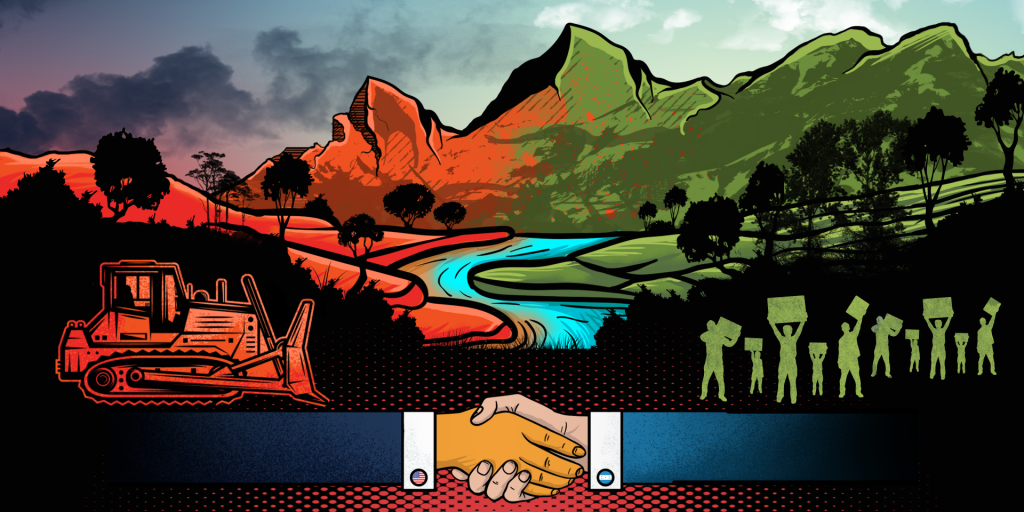
The Guapinol Water Defenders, including Juan López and others, tried for years to get Los Pinares to enter into a consultation about this project, but met with little success. In frustration, they held a large public meeting to discuss and vote on the will of the local communities.
The vote was a resounding NO to the project. The government reacted by charging the Water Defenders with illegal association (i.e., conspiracy to commit crime), and detained and jailed dozens of people, including Juan López. Some were later released, but others were transferred to a high-security prison in another region where they remained for almost two years.
Los Pinares was initially a joint venture between the Honduran group EMCO and the giant U.S. steel company Nucor based in Charlotte, North Carolina. Nucor’s website boasts that the company is “North America’s most sustainable steel and steel products company.”
Nucor claims its direct investment in Los Pinares ended in 2019. The U.S. government over many years has failed to hold U.S.-based corporations to account, and has at least tacitly supported a climate of fear and intimidation in Honduras to ensure that U.S. corporations in Honduras and Honduran companies like Los Pinares continue to provide materials and wealth to the U.S.
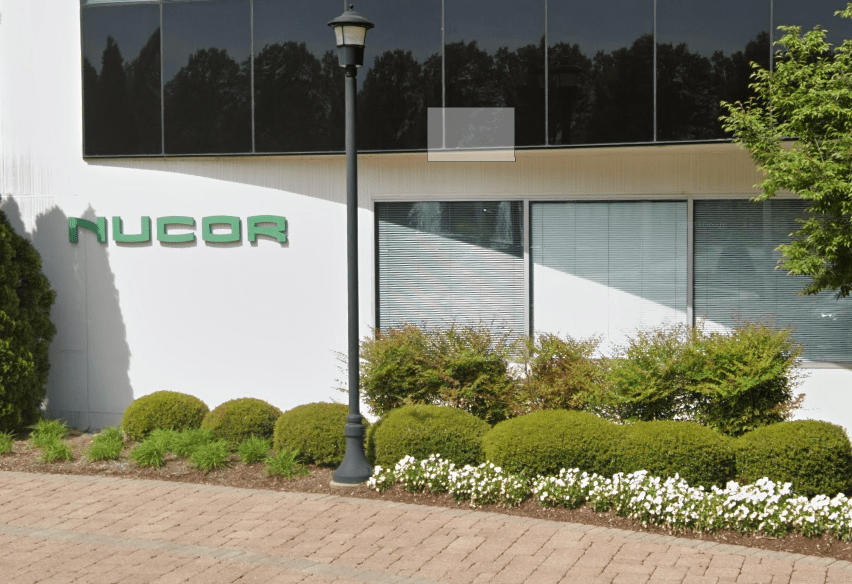
The U.S. and powerful Honduran interests have issued warnings against trying to restrict or regulate foreign enterprise and extraction. This amounts to a prohibition against engaging in the kind of environmental and human rights activism exemplified by López and the Guapinol defenders. The U.S. ambassador and others have issued thinly veiled warnings to Honduran President Xiomara Castro’s government not to try to change this situation.
People came to Juan López for counsel and aid. His murder comes in the context of increasing pressures on the government of President Castro.
The United Nations and the Inter-American Committee on Human Rights had both mandated that the Honduran government provide protective measures (medidas cautelares) for López. Despite such protection, an assassin was able to kill him. The double message is clear to many Hondurans: Defenders of human rights and the environment will be eliminated and, despite all the protections, the killers and their bosses can kill anyone they want.
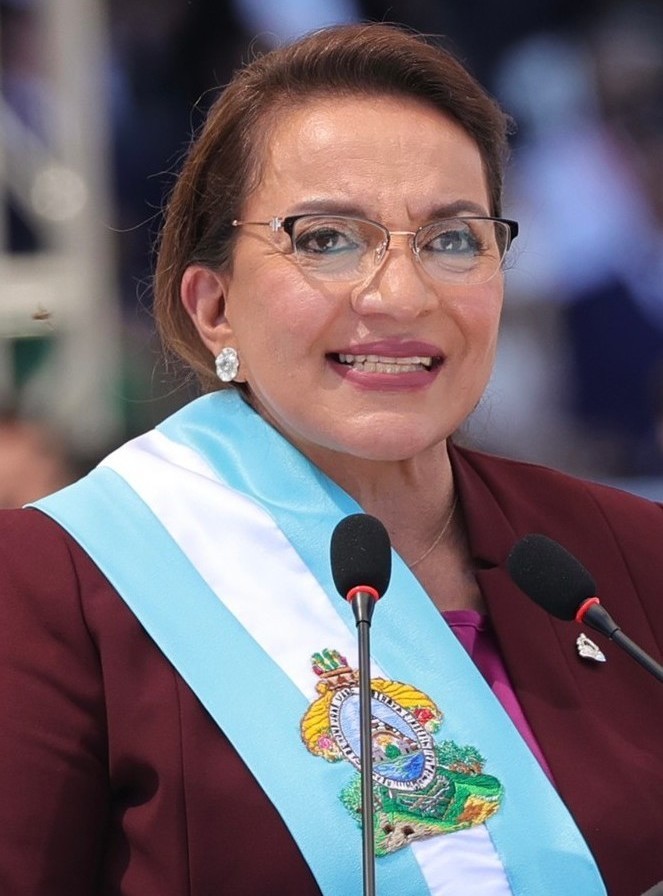
The murder of López highlights the inability (weakness) of the Castro government in the face of the powerful corruption that still poisons much of the political economy and daily life of the country. When she was elected in 2021, Castro pledged to work to build a political economy that would de-emphasize dependence on foreign extraction and instead promote local enterprise and safeguard local communities.
Her government has taken some courageous actions—such as withdrawing from an international accord that allowed foreign corporations to sue Honduras for ending contracts with these corporations.
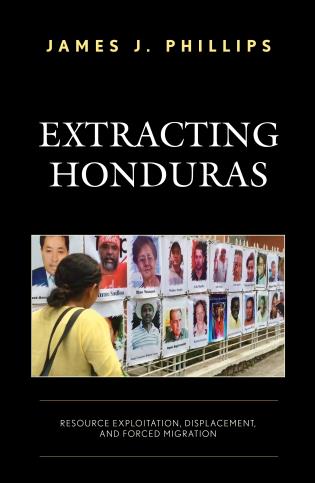
The larger issue is the inability of governments to regulate the predations of international corporations on their soil, especially those based on the extraction or destruction of natural resources.
As I show in detail in my book, Extracting Honduras: Resource Exploitation, Displacement, and Forced Migration (Lanham, MD: Lexington Books 2022), such destruction is a root cause of emigration from countries like Honduras. But, despite all the hand wringing and vitriol about immigration police and border “security” in U.S. politics, U.S. and other foreign governments that should exercise regulation over the exploits of their corporations in countries like Honduras manifest a singular lack of will to do so.
The people of Honduras are victims of this aggressive and virtually uncontrolled exploitation. When their people try to defend their land and sovereignty, they are jailed or murdered with impunity.
The murder of Juan López is yet another stark reminder of the criminality of a global political economy that kills both people and the earth.
It is also a reminder that this criminal enterprise will always be strongly resisted by courageous defenders of life and environment.
But they could use the support of U.S. citizens working to hold U.S. politicians and corporations accountable for what they do in countries like Honduras.

CovertAction Magazine is made possible by subscriptions, orders and donations from readers like you.
Blow the Whistle on U.S. Imperialism
Click the whistle and donate
When you donate to CovertAction Magazine, you are supporting investigative journalism. Your contributions go directly to supporting the development, production, editing, and dissemination of the Magazine.
CovertAction Magazine does not receive corporate or government sponsorship. Yet, we hold a steadfast commitment to providing compensation for writers, editorial and technical support. Your support helps facilitate this compensation as well as increase the caliber of this work.
Please make a donation by clicking on the donate logo above and enter the amount and your credit or debit card information.
CovertAction Institute, Inc. (CAI) is a 501(c)(3) non-profit organization and your gift is tax-deductible for federal income purposes. CAI’s tax-exempt ID number is 87-2461683.
We sincerely thank you for your support.
Disclaimer: The contents of this article are the sole responsibility of the author(s). CovertAction Institute, Inc. (CAI), including its Board of Directors (BD), Editorial Board (EB), Advisory Board (AB), staff, volunteers and its projects (including CovertAction Magazine) are not responsible for any inaccurate or incorrect statement in this article. This article also does not necessarily represent the views the BD, the EB, the AB, staff, volunteers, or any members of its projects.
Differing viewpoints: CAM publishes articles with differing viewpoints in an effort to nurture vibrant debate and thoughtful critical analysis. Feel free to comment on the articles in the comment section and/or send your letters to the Editors, which we will publish in the Letters column.
Copyrighted Material: This web site may contain copyrighted material the use of which has not always been specifically authorized by the copyright owner. As a not-for-profit charitable organization incorporated in the State of New York, we are making such material available in an effort to advance the understanding of humanity’s problems and hopefully to help find solutions for those problems. We believe this constitutes a ‘fair use’ of any such copyrighted material as provided for in section 107 of the US Copyright Law. You can read more about ‘fair use’ and US Copyright Law at the Legal Information Institute of Cornell Law School.
Republishing: CovertAction Magazine (CAM) grants permission to cross-post CAM articles on not-for-profit community internet sites as long as the source is acknowledged together with a hyperlink to the original CovertAction Magazine article. Also, kindly let us know at info@CovertActionMagazine.com. For publication of CAM articles in print or other forms including commercial internet sites, contact: info@CovertActionMagazine.com.
By using this site, you agree to these terms above.
About the Author
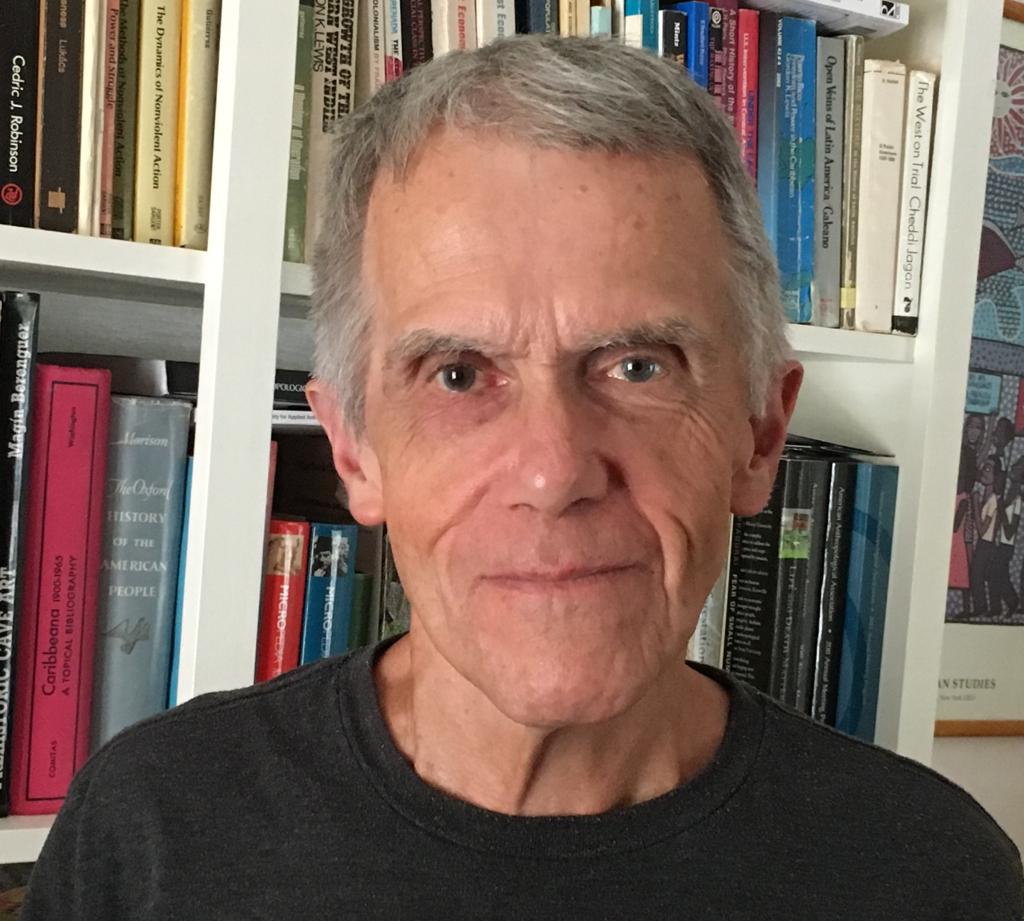
James Phillips is a cultural and political anthropologist with forty years as a student of Central America.
His major concerns are movements of social change, political conflict, human rights, colonialism, and immigrant and refugee populations.
He is the author of articles and book chapters on Honduras and Nicaragua. His most recent book is Extracting Honduras: Resource Exploitation, Displacement, and Forced Migration (Lexington Books, 2022).
James can be reached at anthrodocjp@gmail.com.



